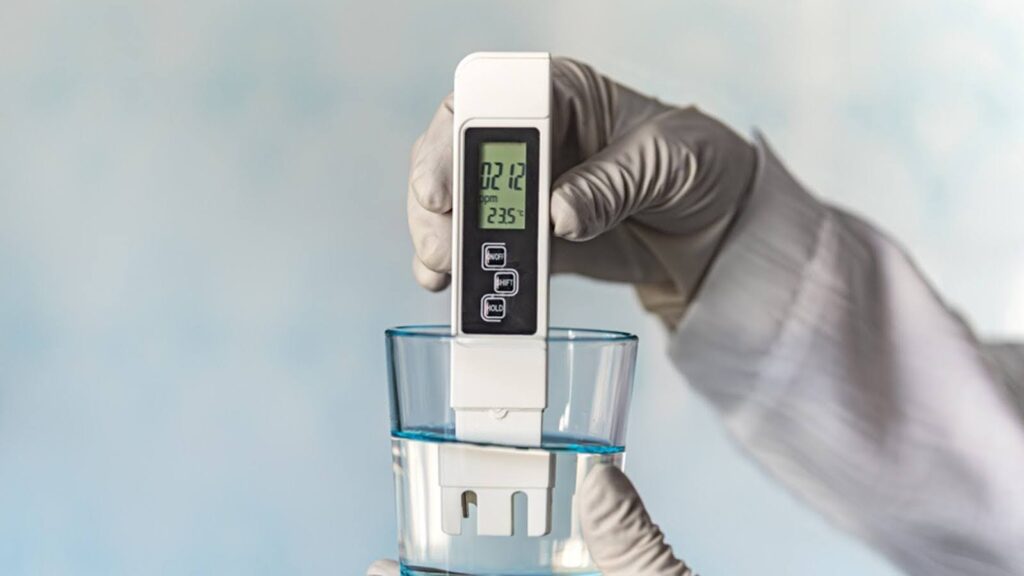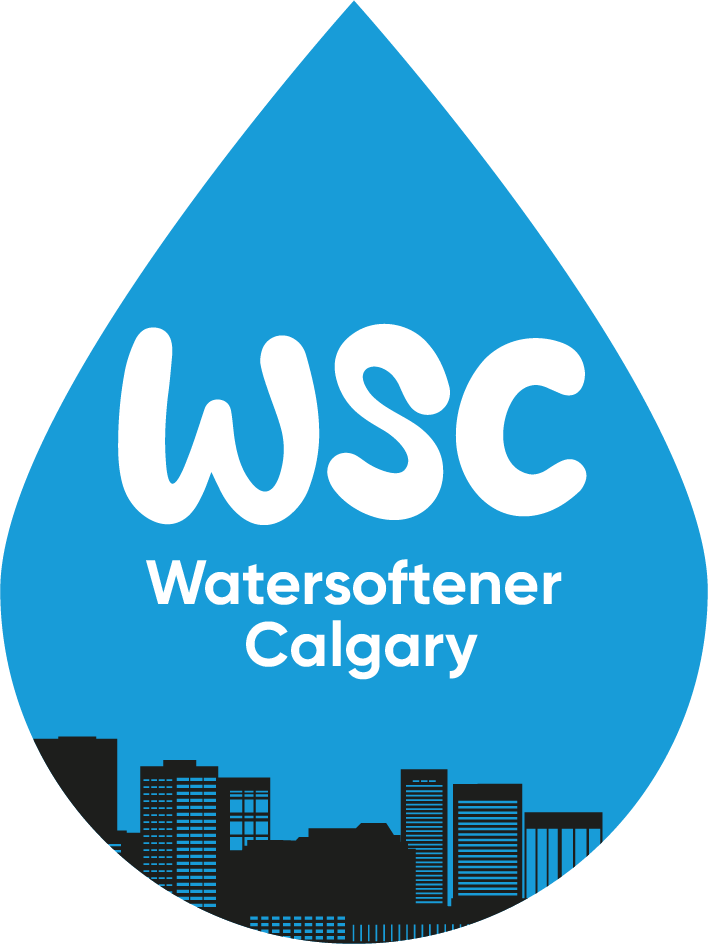If you’re a Calgary homeowner frustrated with limescale on faucets, stiff laundry, or appliances wearing out too quickly, you’re far from alone. Calgary’s water is sourced from the Bow and Elbow Rivers, and according to the City of Calgary, it averages around 180 mg/L of calcium carbonate. That places it in the very hard water category.
So what’s the best solution? Many homeowners weigh the choice between salt-based water softeners and salt-free conditioners. But which one really works for Calgary’s water?
This guide offers an unbiased, research-backed breakdown of salt vs. salt-free systems, tailored to Calgary’s conditions, so you can make a confident decision for your home, your appliances, and your family.

Table of Contents
ToggleUnderstanding Hard Water in Calgary
Hard water isn’t harmful to drink, but it is costly over time. Calgary’s very hard water means:
- Scale buildup in kettles, humidifiers, and hot water tanks
- Reduced efficiency in water heaters and boilers
- Soap scum, cloudy dishes, and dry, itchy skin
- Shortened appliance lifespan
Over the years, these issues can cost homeowners thousands in energy bills, repairs, and replacements. That’s why many Calgary households turn to water softeners.
If you want to explore the different softening and conditioning technologies used in Calgary, check out this in-depth guide to Calgary water softener technologies.
What is a Salt-Based Water Softener?
Salt-based water softeners use ion exchange to physically remove hardness minerals.
How it works:
- Hard water passes through a resin bed charged with sodium or potassium ions.
- Calcium and magnesium swap places with sodium.
- The hardness minerals are flushed away during regeneration.
Benefits:
- Removes hardness minerals completely
- Proven effective in very hard water like Calgary’s
- Protects plumbing and appliances
Limitations:
- Requires regular salt refills
- Discharges brine wastewater during regeneration
- Adds a small amount of sodium (usually negligible)
What is a Salt-Free Water Softener?
Salt-free systems (often called “conditioners”) don’t actually remove hardness — they alter it. Most use Template Assisted Crystallization (TAC) to change the structure of minerals so they don’t stick to surfaces.
How it works:
- Minerals form into microscopic crystals.
- These stay suspended in water instead of clinging to pipes.
Benefits:
- No salt or brine
- Low maintenance
- Eco-friendly and septic-safe
- Sodium-free
Limitations:
- Doesn’t remove hardness minerals
- Less effective in very hard water, like Calgary’s
- Won’t fully prevent spotting or soap scum
Performance Comparison in Calgary Conditions
| Feature | Salt-Based Softener | Salt-Free Conditioner |
| Removes Hardness Minerals | ✅ Yes | ❌ No |
| Prevents Scale Buildup | ✅ Yes | ✅ Moderately |
| Effective in Very Hard Water | ✅ Yes (ideal for Calgary) | ❌ Limited performance |
| Sodium-Free | ❌ No | ✅ Yes |
| Maintenance Required | ✅ Salt refills + servicing | ✅ Minimal upkeep |
| Septic Friendly | ❌ Depends on setup | ✅ Yes |
Health & Environmental Considerations
- Sodium in Softened Water: Salt-based units add about 7–8 mg sodium per litre. For most people, that’s negligible, but those on sodium-restricted diets can:
- Use potassium chloride instead of sodium (higher cost)
- Add a reverse osmosis filter for drinking water
- Wastewater: Salt-based systems discharge brine during regeneration, which may not suit septic or eco-sensitive areas.
- Eco-Friendly Factors: Salt-free conditioners use less water and energy, but their limited effectiveness in Calgary’s very hard water often means scale buildup still occurs.
Real Homeowner Needs: Choosing Based on Lifestyle
Go Salt-Based If:
- You live in Calgary (very hard water ~180 mg/L)
- You want real mineral removal
- You rely on expensive appliances (dishwasher, tankless water heater, humidifier)
Go Salt-Free If
- You live in an area with moderate hardness (not typical in Calgary)
- You want an eco-friendly, low-maintenance solution
- You’re on a septic system or restricted-sodium diet
For most Calgary households, salt-based softeners remain the best long-term solution.
Costs & Maintenance: Salt vs. Salt-Free
| Factor | Salt-Based System | Salt-Free System |
| Equipment Cost | $1,000 – $2,500 | $1,000 – $2,000 |
| Installation | $300 – $600 | $300 – $500 |
| Annual Maintenance | $150 – $250 (salt + check) | $50 – $100 (media replacement) |
| Lifespan | 10–15 years | 6–8 years |
While salt-free units look easier upfront, they often struggle with Calgary’s very hard water, leading to indirect costs in cleaning products, appliance wear, and higher energy bills.
What Local Experts Recommend
Most Calgary plumbers and water treatment specialists recommend salt-based ion exchange systems (brands like Fleck, Clack, and Pentair) with metered controls. These provide reliable protection for:
- Hot water tanks
- Dishwashers
- Washing machines
- Tankless heaters & humidifiers
Experts also recommend testing your water every 1–2 years to confirm performance and catch any issues early.
Add-Ons for Maximum Effectiveness
For Calgary homes, consider pairing your water softener with:
- Sediment Pre-Filters – stop sand, silt, or rust from clogging the softener
- Carbon Filters – improve taste and reduce chlorine
- Reverse Osmosis (RO) – ideal for pure, sodium-free drinking water
Final Verdict: The Right Choice for Calgary
When it comes to salt vs. salt-free systems in Calgary, the science points to a clear answer:
- Salt-based water softeners deliver true hardness removal and lasting protection in very hard water.
- Salt-free systems may be attractive for their eco-friendly angle, but their limited effectiveness makes them less practical for Calgary households.
The right system is a smart investment in your comfort, appliances, and home value.
At Water Softener Calgary, we help homeowners make informed choices with local knowledge and honest guidance.
Book your complimentary water test to determine which option is best for you.
Because in Calgary, softer water isn’t just a luxury, it’s peace of mind.



